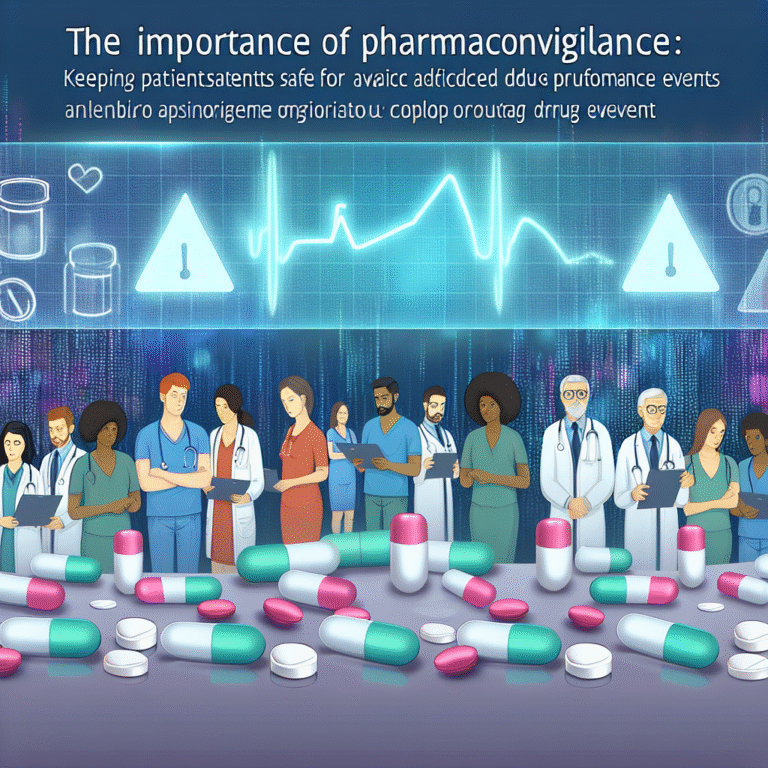How to Launch a Successful Career in Pharmacovigilance: A Guide for Aspiring Specialists
How to Start a Career in Pharmacovigilance: A Guide for Beginners
Introduction
Pharmacovigilance is a really important part of healthcare. It focuses on finding, understanding, and preventing bad effects from medicines. This work helps make sure medicine is safe and effective for patients. If you’re interested in this field, there are lots of jobs you can do, like being a data analyst or a drug safety associate. You can even work your way up to a manager or director! This guide will help you understand how to start a career in pharmacovigilance.
What is Pharmacovigilance?
Pharmacovigilance means keeping an eye on medicines and making sure they don’t cause problems. Here’s what it involves:
1. Reporting Side Effects: Collecting reports of unwanted effects from medicines.
2. Finding Patterns: Looking for any unusual data trends that may show new risks.
3. Managing Risks: Making plans to reduce risks and make sure medicines work well.
4. Following Rules: Making sure everything follows national and international guidelines.
Skills and Qualifications You Need
To do well in pharmacovigilance, you need certain education and skills:
Education:
1. Degrees in pharmacy, life sciences, or nursing are helpful.
2. Certifications like Pharmacovigilance Training and Certification (PVTC) can be a plus.
Skills:
1. Be detail-oriented to spot trends in data.
2. Good communication and teamwork make working with others easier.
3. Analyzing and solving problems helps in understanding complex data.
Technical skills:
1. Know how to use pharmacovigilance software like Argus Safety.
2. Be familiar with databases like the FDA Adverse Event Reporting System (FAERS).
Building a Strong Foundation
To start a career in pharmacovigilance, you need a good base of education and experience:
Education paths:
1. Take courses in pharmacy, biology, and statistics.
2. Get training or certifications in pharmacovigilance.
Early experience:
1. Try internships or volunteer in drug safety or regulatory areas.
2. Learn from professionals in the field to see what they do daily.
Networking and Growing Professionally
Making connections is important in pharmacovigilance. It can help you find new opportunities:
Why networking matters:
1. Learn from experienced people who can guide you.
2. Keep up with industry trends by talking to others.
Groups to join:
1. International Society of Pharmacovigilance (ISoP).
2. Drug Information Association (DIA).
3. Society of Clinical Research Associates (SOCRA).
Attend events:
1. Go to conferences and workshops to learn the latest in the field.
2. Improve your skills by joining training sessions.
Getting a Job
To find a job, you need a plan:
Job search tips:
1. Make your resume and cover letter show your skills and experiences.
2. Use job boards like PharmaDiversity Job Board or Medzilla.
3. Use your network and alumni groups for job leads.
Preparing for interviews:
1. Know common questions like “How do you handle adverse event reports?”
2. Share relevant experiences and successes to show your skills.
Growing Your Career
There are many ways to grow in pharmacovigilance:
Career path options:
1. Move up from Drug Safety Associate to Manager or Director.
2. Specialize as a Risk Management Specialist or Signal Detection Analyst.
How to advance:
1. Get more certifications or degrees for more expertise.
2. Lead projects to show your skills.
3. Seek advice and feedback to improve.
Overcoming Challenges
Working in pharmacovigilance can be tough, but you can overcome challenges:
Common challenges:
1. Keeping up with changing rules.
2. Managing complex data.
3. Balancing safety with business needs.
Tips to deal with challenges:
1. Keep learning and improving.
2. Use efficient ways to manage data.
3. Communicate well with your team.
Conclusion
Starting a career in pharmacovigilance is both rewarding and challenging. By following the steps in this guide—getting the right education, building a strong base, networking, finding the right job, and continuing to learn—you can succeed in this important field. Remember, the journey may seem hard at first, but you will be contributing to better public health and patient safety as you grow.
Additional Resources
Here are some extra resources to help you:
Books and courses:
1. “Pharmacovigilance: Principles and Practice” (book).
2. Online courses from Coursera and Udemy.
Websites and forums:
1. The FDA website for updates.
2. Pharmacovigilance forums on Reddit and LinkedIn.
Schools/programs:
1. University of Hertfordshire offers an MSc in Pharmacovigilance.
2. The Drug Safety Research Unit (DSRU) offers training in pharmacovigilance.
By using these resources and following this guide, you’ll be on your way to a successful career in pharmacovigilance. Take the leap and help make medicines safer for people everywhere!






